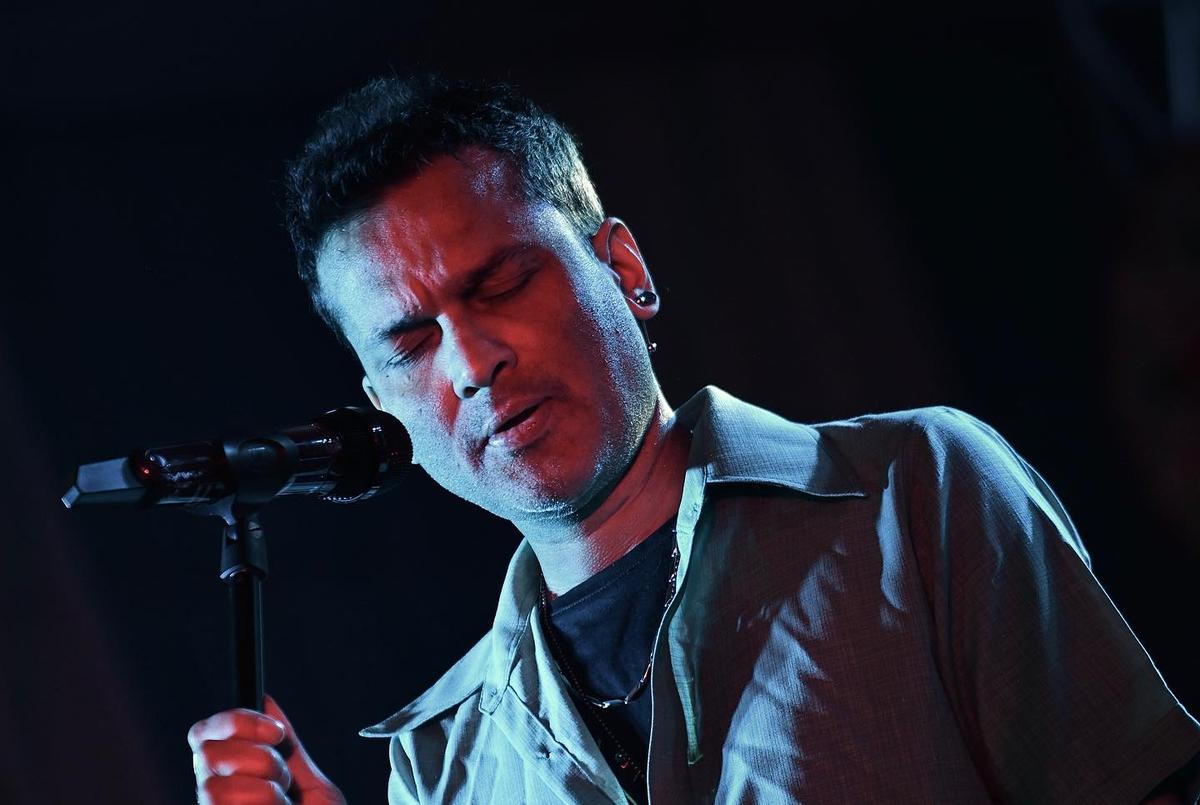Zubeen da, Goldie da — these were some of the names by which Zubeen Garg was known. The musician from Assam, who passed away recently following an incident in Singapore, recorded over 40,000 songs and became a voice for every mood. His sudden shifts in octave — from high to middle to low — were a mark of his musical gift.
When his album Maya was released, the track Maya Mathu Maya became a love anthem for a generation. Bihu festivities felt incomplete without one of his tracks. As a singer, he defied restrictions of language, moving easily across styles and tongues.
Zubeen Garg at the Citizenship Amendment Act of India protest in Assam
| Photo Credit:
RITU RAJ KONWAR
He was a maverick without any airs, a star who connected with people through his words and music. Videos of him teaching a parrot to say kaka (brother in Assamese) still warm the heart. He loved trees and often urged people to plant more. He called himself a people’s man, and lived by it, often dropping into homes unannounced, sharing a simple meal of dal and rice with quiet satisfaction.
Musicians from Assam share their memories of Zubeen da.
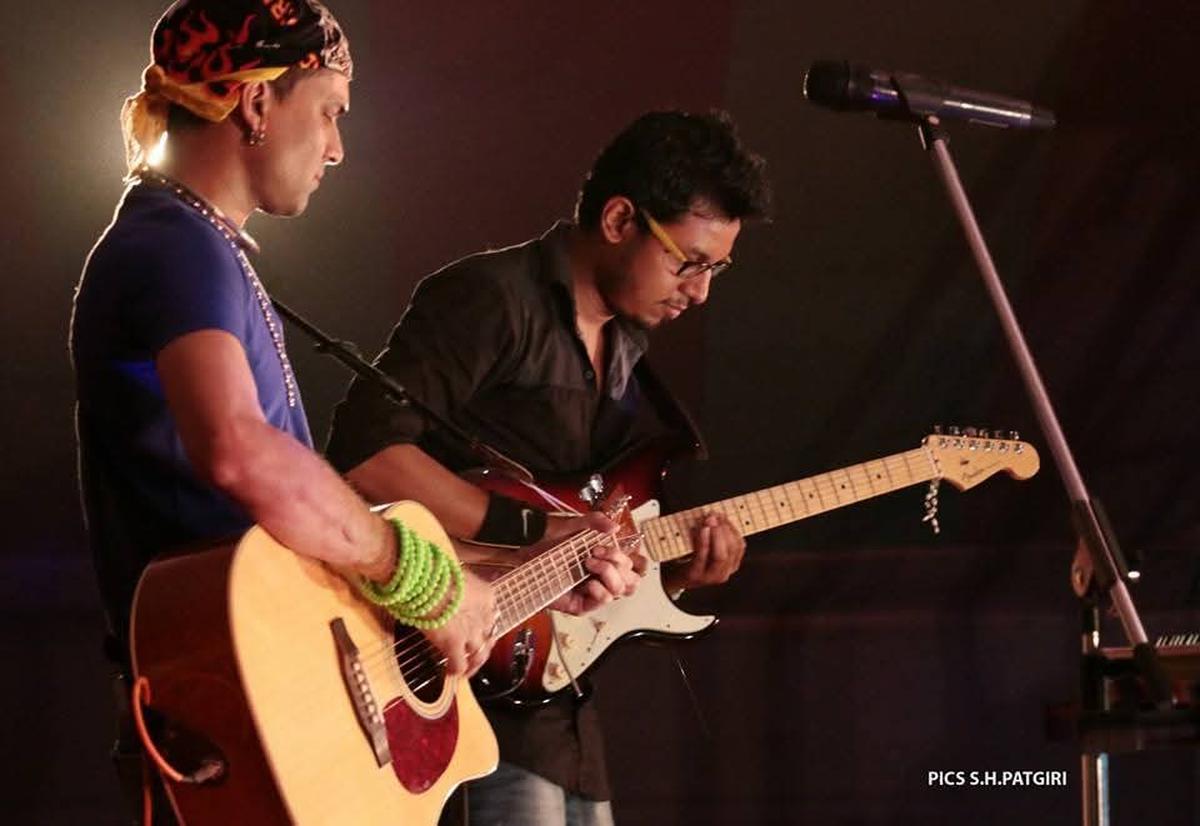
Kailash Sharma with Zubeen Garg
| Photo Credit:
Special Arrangement
Kailash Sharma, guitarist
My memories with Zubeen da are countless. When I first learnt to play the guitar, the very first song I played was Mayabini, which had released in 2001. I studied at B Borooah, the same college as him, and after playing Mayabini I secretly wished I could one day perform with him. That wish came true 11 years later, in 2011, when I got my first chance to share a stage with him in Nagaon. Until then, I had performed with artistes like Anupam, Zublee and Srimanta, but that night was different.
Zubeen Garg was one with the people in their grief
| Photo Credit:
RITU RAJ KONWAR
After the show, we had dinner together at a dhaba in Nelli. Over that simple meal, Zubeen da praised my guitar playing and told me I had played the Xanti Diya track exceptionally well. Then he said, “You have to play with me for Bihu. So stick around with us.” This was October 2011. I stayed on, and ended up performing with him for the next four years.
Those years were unforgettable. Zubeen da was encouraging and affectionate, treating all of us in the team like siblings. He was light-hearted, jovial, always cracking jokes. He even had a peculiar habit of holding a band member’s hand and cracking their knuckles — childlike in many ways. In Assamese, there’s a term ‘free and frank’ to describe someone who never minces words. That was Zubeen da, in both his speech and his thoughts.
But as a musician, he wasn’t easy to please. He would make you play until you brought out your very best. I remember working on The Rock album at the Kharguli studio. One night, after a long day, I went home to sleep. At 3am, my phone rang. His name flashed on the screen. When I picked up, he simply said, “Come to the studio. Let’s record one song.” I rushed back with my guitar, and we played till 7 am. Another night, he called me at 10pm for a recording, but when I arrived he was watching a motor-racing film. We all stayed, finished the film, and then slept on the studio floor. It reminded me of childhood holidays when cousins would sleep side by side at our grandparents’ home. That was the atmosphere he created — work, music, and camaraderie all rolled into one.

What I admired most was his outlook on life. He always said he loved spending time with ordinary people. He would happily sit down to chat with a vegetable vendor, a rickshaw puller, or someone at a roadside tea stall. He treated everyone equally and often spoke to the youth about love and equality.
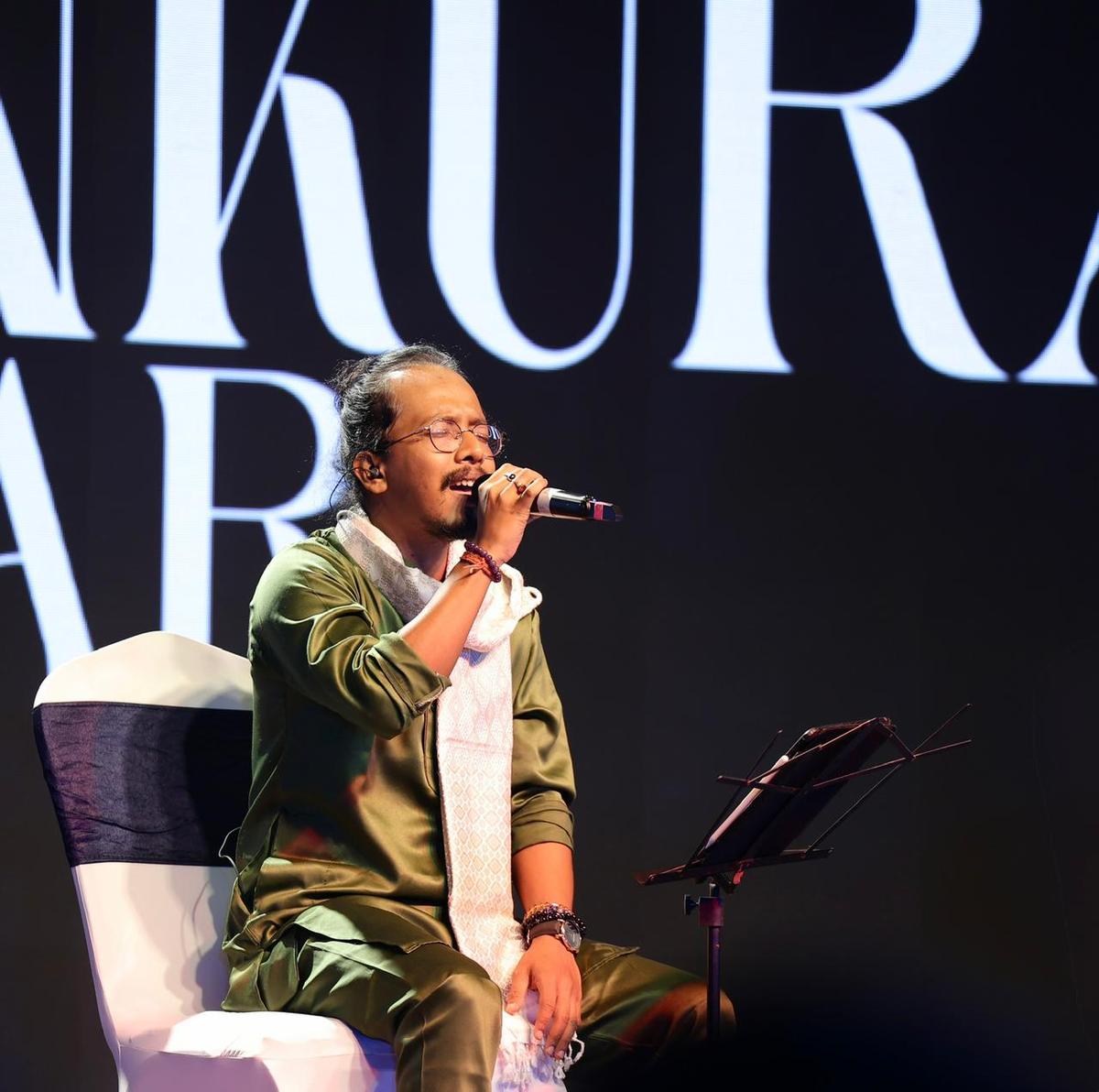
Shankuraj Konwar
| Photo Credit:
Special Arrangement
Shankuraj Konwar, singer
My musical journey is defined by a single, powerful influence: Zubeen Garg. As a musician, I can confidently say I wouldn’t be where I am without him. His music wasn’t just the soundtrack to my childhood, it was the very foundation of my artistic education.
My earliest memories of singing are tied to his songs. I would sit for hours listening to tracks like Anamika and Maya, trying to capture the emotion and depth in his voice. Through his melodies, I learnt rhythm, the strength of a lyric, and the importance of pouring my soul into every note.
Singer Zubeen Garg along with Bodybuilder Mahadev Deka collecting funds for flood victims in Assam in 2015
| Photo Credit:
RITU RAJ KONWAR
But his influence went far beyond music. Zubeen da embodied kindness, compassion, and generosity. He reminded us to give without expecting anything in return. His songs often celebrated Nature, love, and unity, making us feel part of something larger than ourselves. To me, he was a soul with a purpose far greater than making music. He inspired me not only to be a better artist, but also a better human being.
The values he lived and expressed through music — love, kindness, compassion — are the values I strive to embody in my own life and art. His legacy lies not just in the songs he sang, but in the artists he inspired and the lives he touched. He taught me that music is more than performance — it is connection, a bridge to people’s hearts.
I am a musician because of Zubeen Garg, and I will always be grateful for the gifts he gave me.

Girish (2nd from left) with the members of Girish and the Chronicles
| Photo Credit:
NBC
Girish Pradhan, lead singer, Girish and The Chronicles
Girish and The Chronicles’s journey has been closely tied to Assam since our earliest days, and it pains us to see how deeply this loss has affected the people there. I know what brother Zubeen meant to everyone. He was far more than just a musician — he was their voice, their dreams, and so much more. The sheer number of people who came together to mourn him is a testament to the love and respect he inspired. For us in the Northeast, it feels like we’ve lost a brother.
I’m grateful we had the chance to share the stage with him on more than one occasion. Even though we never really interacted on a personal level, it was always clear that he was a genuine and grounded soul.
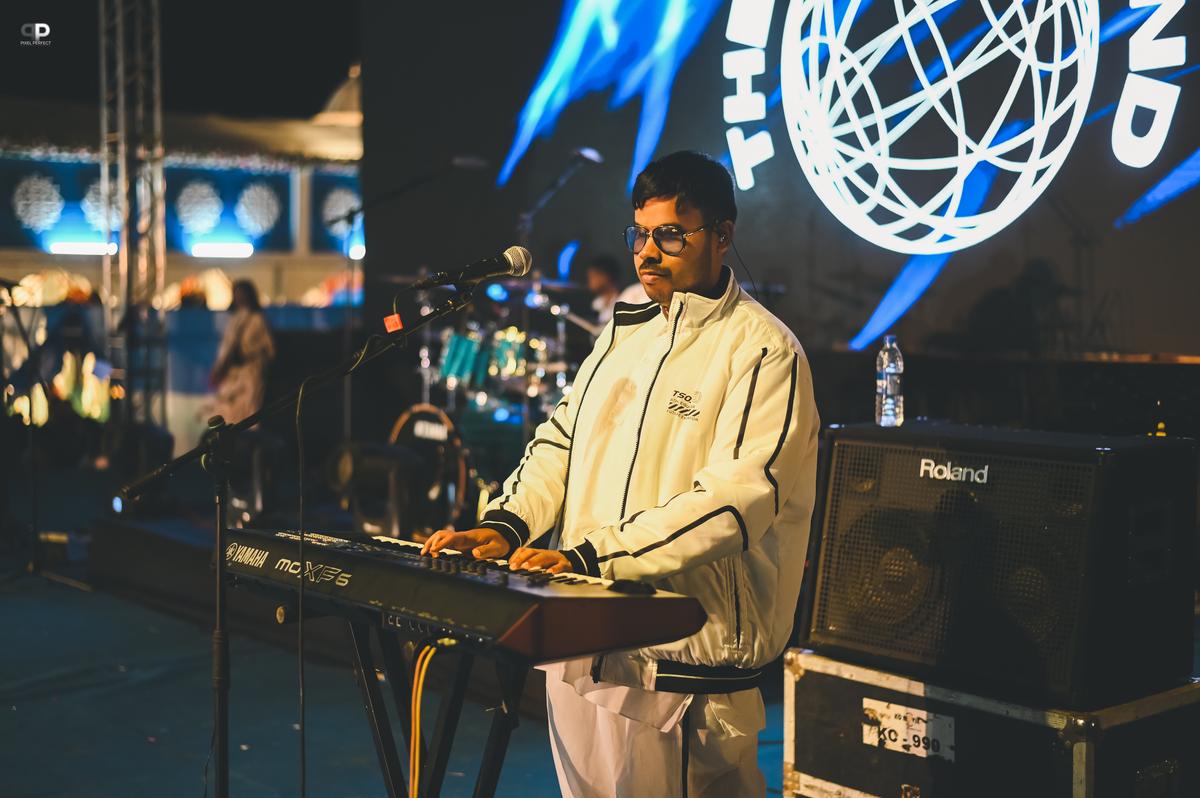
Writam Changkakoti
| Photo Credit:
Special Arrangement
Writam Changkakoti, multi-instrumentalist and music teacher at The Cadenza Music Academy
Zubeen is an emotion for everybody. He was a multifaceted, multi-genre musician — he wrote, composed, and sang. Though I was introduced to his music much later, the first album of Zubeen da’s that I heard was Maya. Yet even then, Maya still felt relevant. Maya was his second album, Anamika was first, it was released in 1992.
One of the most important aspects of his music is his voice — it is unique, almost as if he is singing directly to you. Sonically, he brought a shift in sound and arrangement to Assamese music, changing people’s tastes so that both young and old connected with his songs.
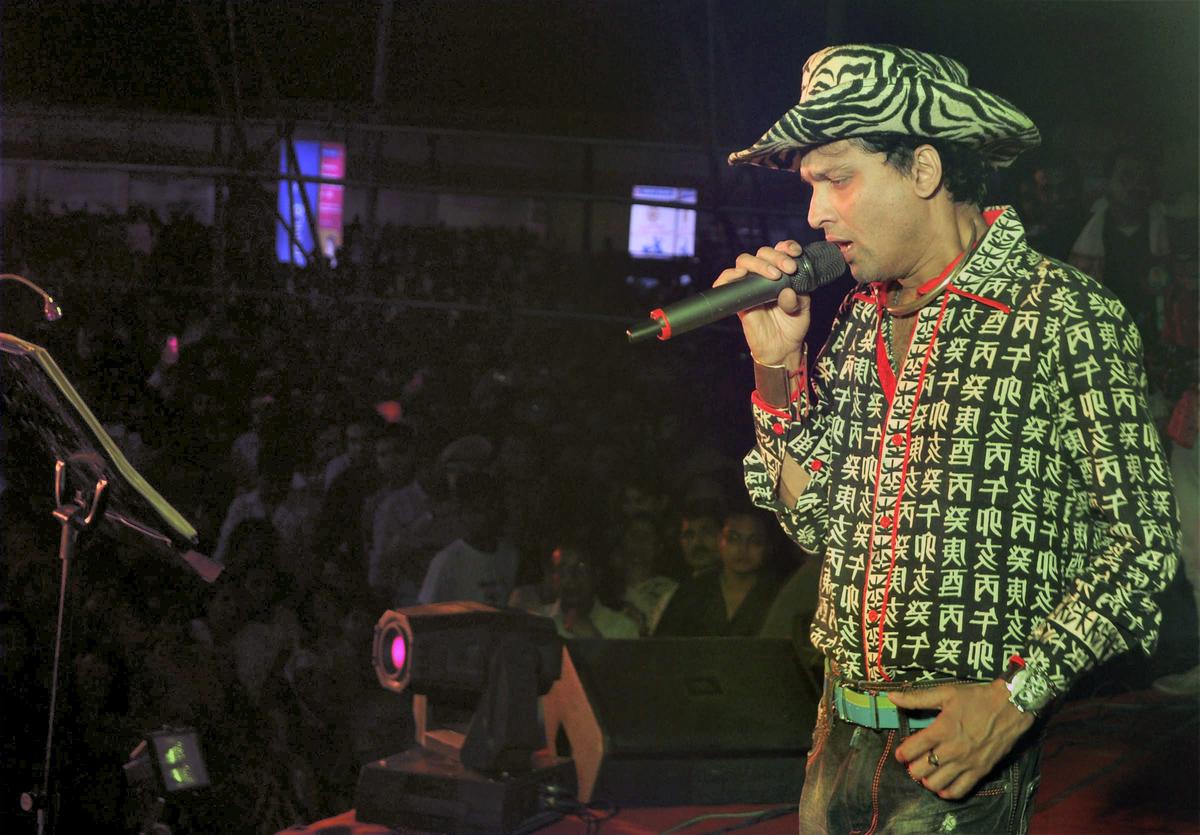
Assam’s Zubeen Garg
| Photo Credit:
Special Arrangement
I met him several times. My first meeting was in 2002, when his album Sishu (Child) was launched. I was the child chosen to release the album. Later, in 2005, he launched my first album Writam’s Jyoti. I have also recorded in his studio.

His tunes and compositions are unmatched, and even his first album continues to feel relevant. His body of work spans diverse genres and languages. Even within Assamese music, he explored a wide range — from borgeet, bihu, and lokageet to love songs, with lyrics that touched on peace, unity, children, and folk traditions.
He could approach something as universal as love through many genres, which in itself was unique.
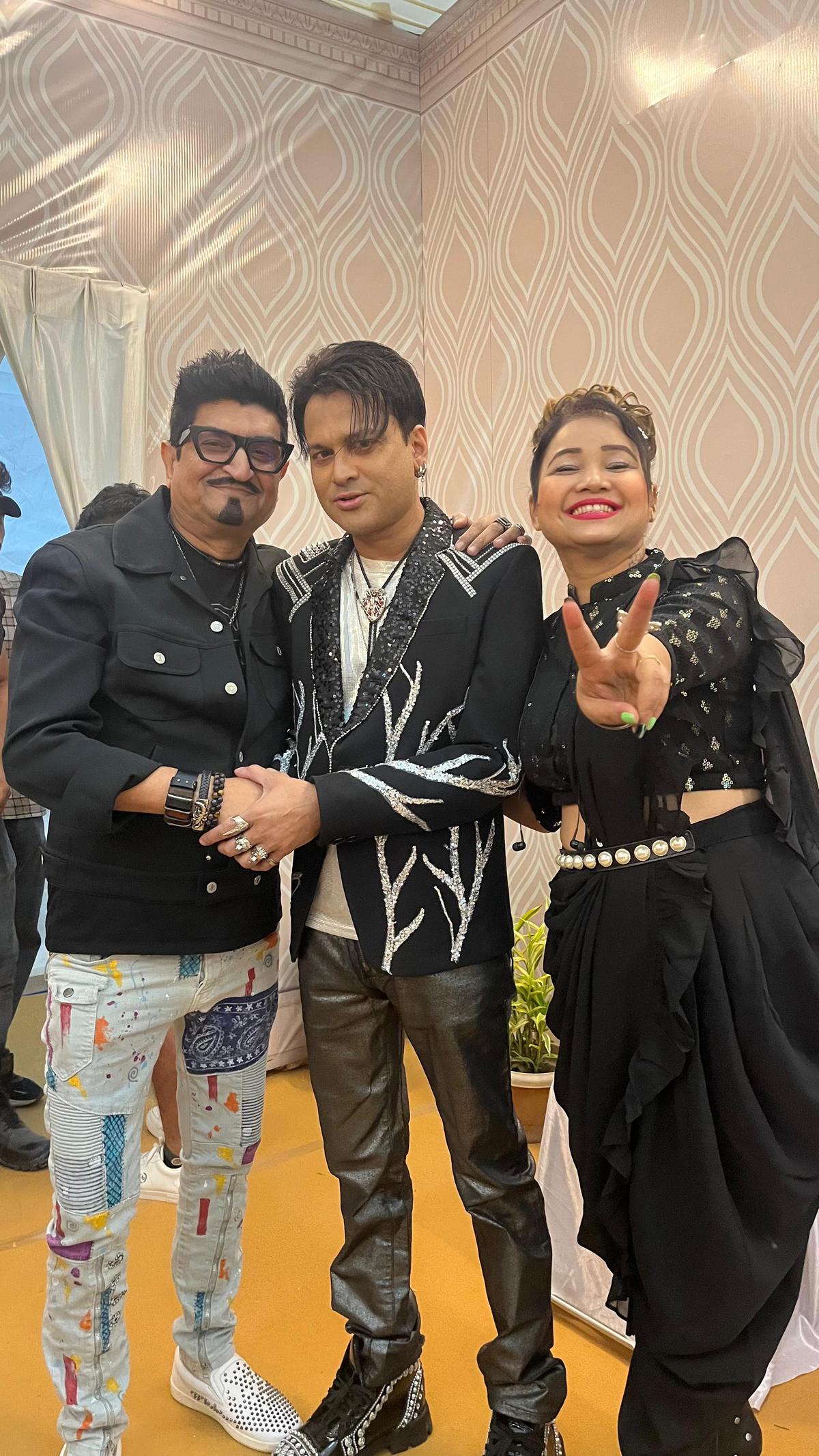
Zubeen Garg (centre) with Neeraj Sridhar and Gorisha Nath
| Photo Credit:
Special Arrangement
Gorisha Nath, female lead vocalist of Bombay Vikings
Zubeen da has been a constant in my life, as he has been for every Assamese. His music touched me from the time he released his album Onamika, and I became a lifelong fan. I even had the chance to perform with him on stage with my sister Pritisha, around 2000–2001. Fresh out of school, we were proud and ecstatic.
When he moved to Mumbai, we were practically neighbours in Sher-e-Punjab (Andheri East) from 2005 onwards. We partied, we made music, we lived like family. Zubeen da had quirky ideas when it came to food — once he cooked egg curry with cabbage and was very proud of it. At another party, he suddenly said, “Oi Gorisha, ei gaantu gai dibi aah” (Hey Gorisha, come and sing this song) — and that’s how his famous song Khiriki Melute happened.
Whenever I was in Assam and he was performing, I made it a point to be there. I was among the privileged few to have easy access to him and his wife, Garima ba. At his shows, he would often call me on stage and we would sing Jaane Kya Chahe Mann together.
Anyone who has known Zubeen da will have a treasure trove of memories — I have zillions.








